Digital Disputes: What They Are and How They Are Resolved
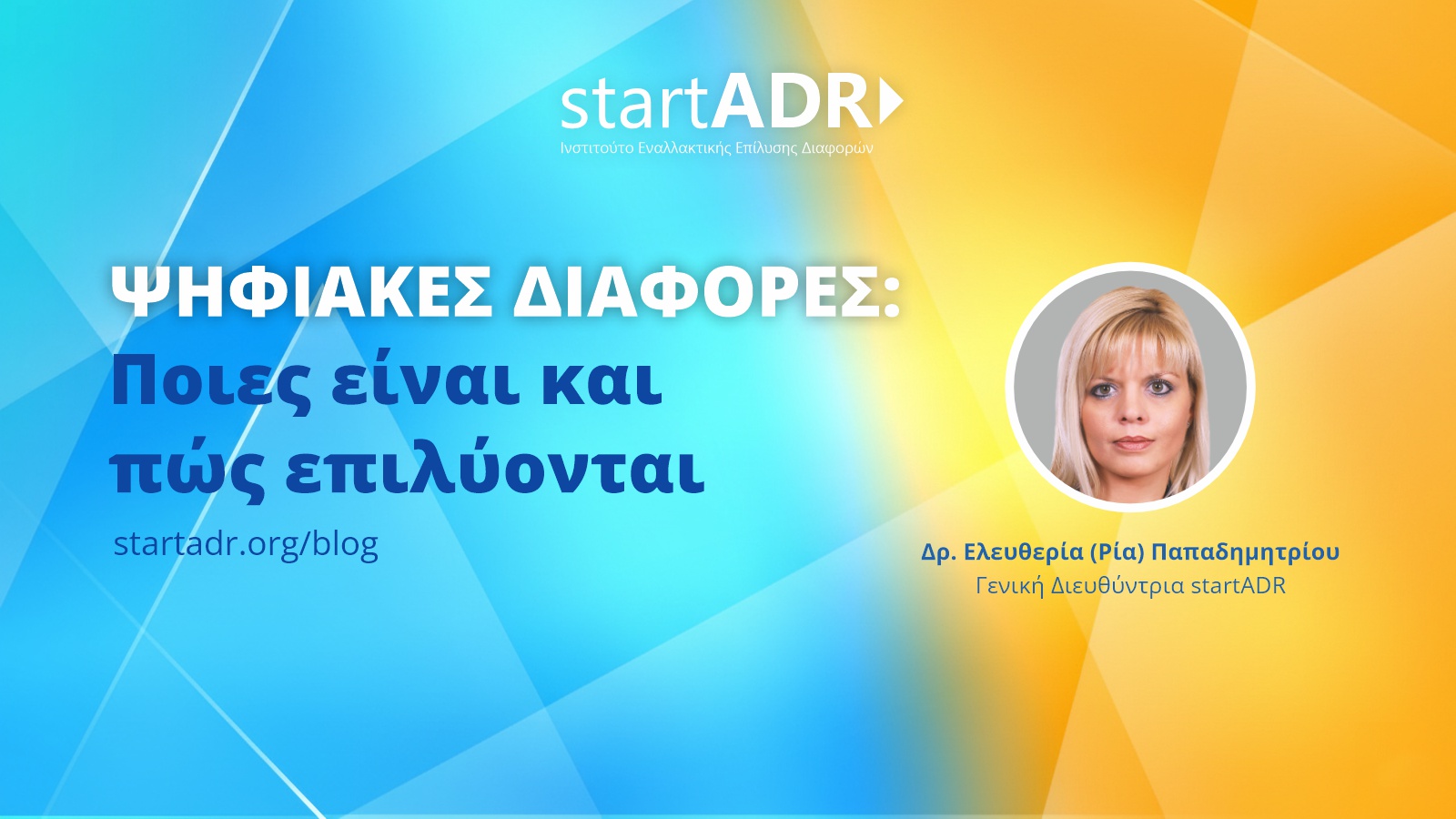
From an account ban to a disputed online transaction, are digital disputes the new face of Justice?
What does "digital divide" mean?
Digital disputes constitute a new and rapidly evolving field of law, reflecting the challenges of the era of online communication and electronic transactions. They are not simply an extension of traditional disputes to a new environment, but rather disputes with special characteristics, which highlight the peculiarities of the digital ecosystem.
A first example comes from online markets (e-shops and marketplaces such as Amazon, eBay or Skroutz), where users often face issues with unreliable merchants regarding non-delivery of products that do not meet the description or disputed charges.
A second area concerns disputes that arise within the context of social media. Deleting or blocking accounts, challenging moderation decisions, or violating user rights are just some of the frequent causes of friction.
At the same time, collaborations with influencers and content creators have opened a new front of disputes, which are related to breach of contractual terms, misleading advertising and consumer protection from unfair practices.
The dimension of intellectual property in the digital environment should not be overlooked, where the uncontrolled reproduction of content without permission, as well as the issues raised by the use of artificial intelligence for content creation, are currently the subject of intense legal interest and concern.
Finally, one of the most critical characteristics of digital differences is the cross-border natureTransactions and communications in the digital space do not know national boundaries, which makes their resolution even more complex, as different legal orders and diverse regulatory frameworks are involved.
Why are digital differences different from traditional ones?
Unlike traditional disputes, which are usually located in clearly demarcated legal and geographical contexts, digital disputes are characterized by three crucial specificities.
First, they are distinguished by speed and volumePlatforms receive millions of transactions and interactions every day, leading to thousands of complaints and disputes on a scale unknown to traditional justice.
Second, they display asymmetry of powerOn one side is the individual user or consumer, while on the other side stand multinational digital platforms with a strong technological and legal infrastructure. This imbalance makes it necessary to establish specific protection mechanisms.
Third, they have multi-layered legal natureA case may raise issues of consumer law, personal data protection, intellectual property or regulatory compliance in the light of both national provisions and European regulations, such as the Digital Services Act (DSA) or the GDPR.
These figures prove that digital divides cannot be addressed with traditional tools. Instead, they require new dispute resolution models, which combine legal precision, technological proficiency and international cooperation.
The role of the Digital Services Act (DSA)
THE Regulation (EU) 2022/2065 on Digital Services (Digital Services Act – DSA) represents a breakthrough in the regulation of the digital economy and in particular in the way disputes arising on the internet are dealt with. The DSA is not limited to general principles, but instead introduces specific, binding obligations for online platforms, strengthening user rights and establishing new dispute resolution mechanisms.
Of particular importance are the articles 20 and 21 DSA:
- Article 20. Internal complaint-handling systems:
Online platform providers are required to provide users with a accessible, easy to use and effective complaints system. Through this, users can challenge decisions such as content removal, account banning or service interruption. This obligation enhances transparency and offers a first level of protection, without requiring direct recourse to justice. - Article 21. Out-of-court dispute resolution through certified entities (ODS providers):
In addition to internal mechanisms, the DSA guarantees the right of users to resort to external, independent and certified Out-of-court Dispute Settlement providersThese bodies are certified by the Member States and must meet criteria. independence, transparency, expertise and accessibility.
This approach is innovative, as for the first time, the European legislator is not limited to giving the user the possibility of judicial protection, but establishes mandatory levels of appeal, which they move in a faster, more flexible and less costly framework.
In addition, DSA introduces a new due process culture in the digital space:
- The user has the right to know the reasons for the removal of their content.
- The provider must justify its decision, while
- There is a right to challenge and appeal to an independent mechanism.
In this way, the European Union seeks to create a ecosystem of trust, where user protection and platform responsibility coexist in balance.
Why the new profession of ODS Facilitator is crucial
The institutionalization of the out-of-court dispute resolution mechanism by the DSA highlighted the need for a new, specialized professional, that of ODS FacilitatorThis role is not simply a technical innovation, but rather, it is a real breakthrough in how we perceive Justice in the digital age.
The ODS Facilitator is called upon to combine:
- In-depth knowledge of the European regulatory framework (DSA, GDPR, consumer law, intellectual property, etc.).
- Specialized facilitation skills (facilitation skills), which include neutrality, de-escalation techniques, dialogue support and understanding the dynamics of digital communities.
- Practical familiarity with complaint-handling systems of the platforms and the technological parameters of online dispute resolution.
His contribution is decisive, as he acts as neutral connecting link between the user and the platform, enhancing transparency, preventing the escalation of the dispute and ensuring the efficiency of the process. In a world where digital differences are increasing exponentially, the ODS Facilitator becomes integral part of the new digital justice ecosystem.
Become a member of the first generation of ODS Facilitators
If you are lawyer, mediator, legal professional, content moderation or complaint handling professional, now is the time to gain the competitive advantage that will make you a pioneer in the European market.
The ODS Facilitator Training of startADR is the pan-European innovation and flagship program of startADR, which combines high-level scientific theoretical training, practical scenarios and real-case simulations with the possibility of practical application in real cases. It is the unique program which equips you with the skills to meet the requirements of the DSA and claim an active role in the new professional landscape.
Register now and secure your place in the first generation ODS Facilitators: https://startadr.org/ekpaideftiko-programma-ods-facilitator-training-09-2025/
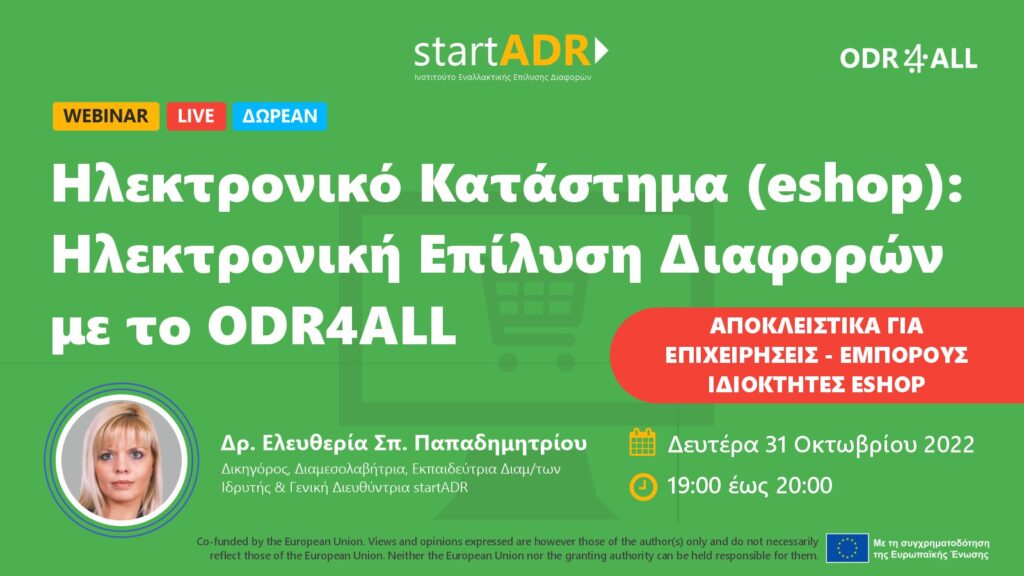
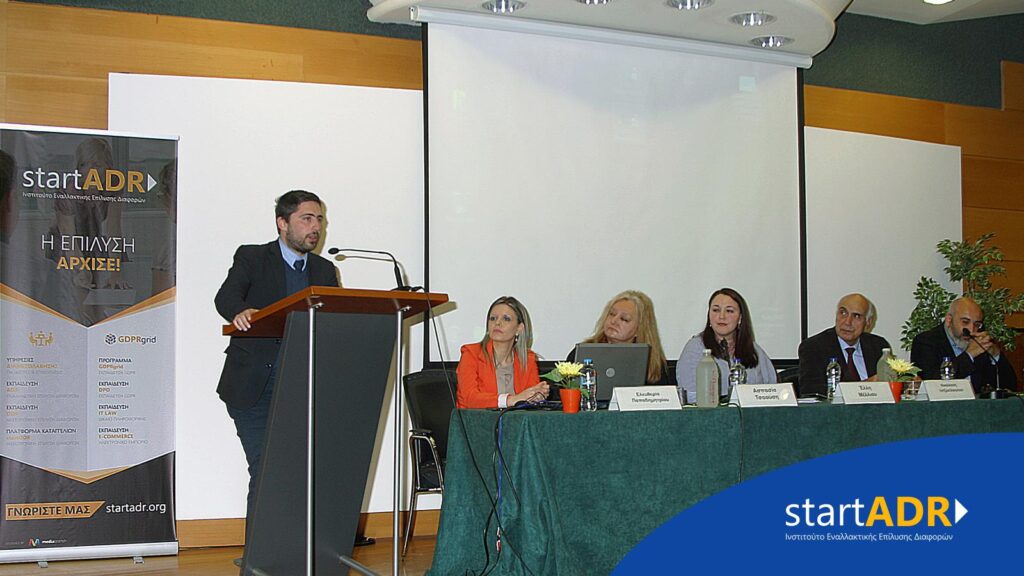
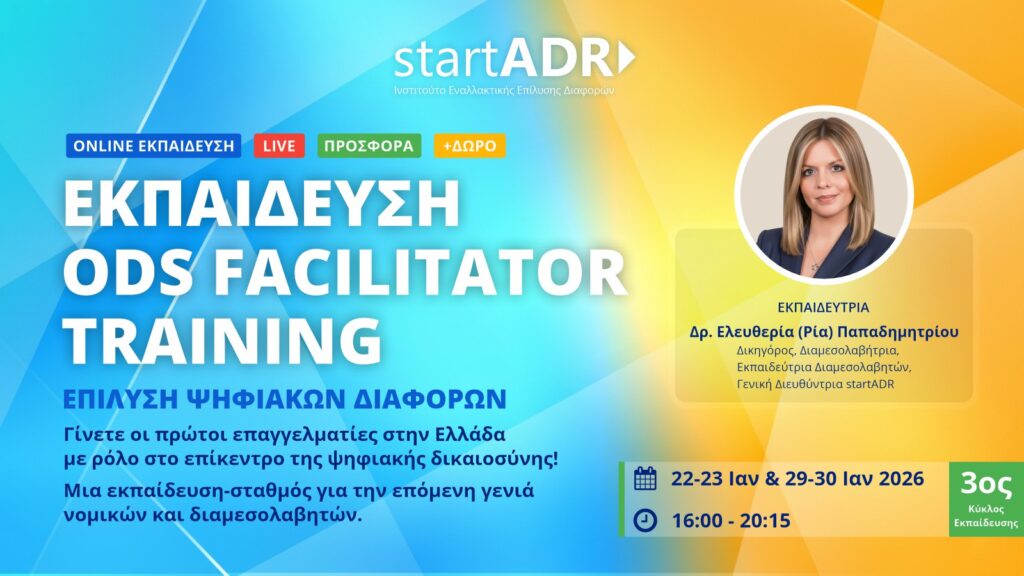
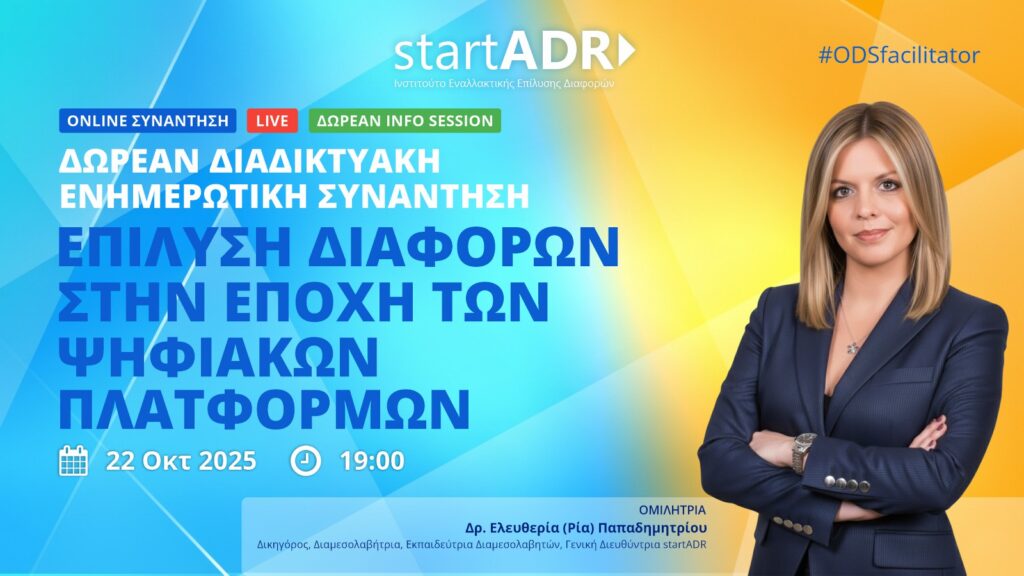
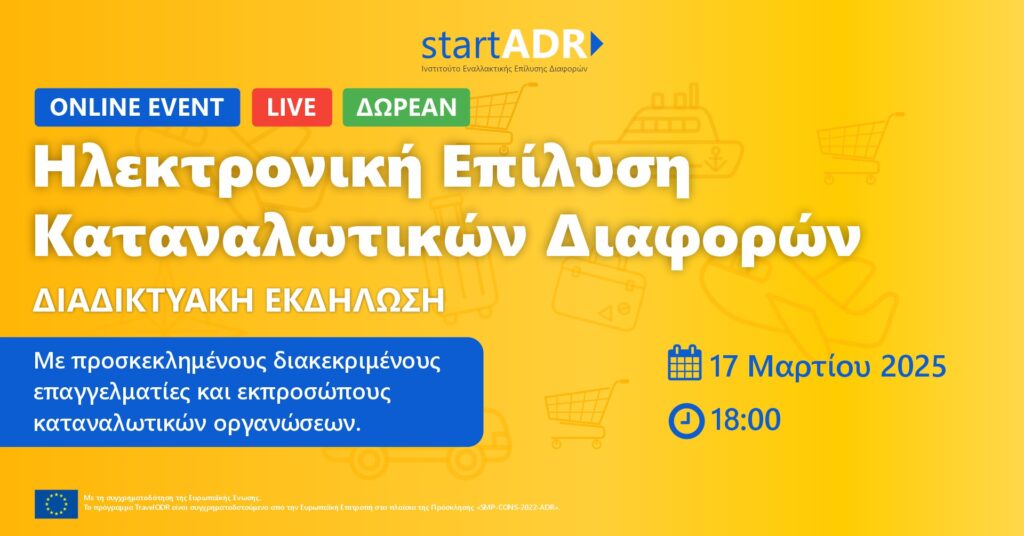
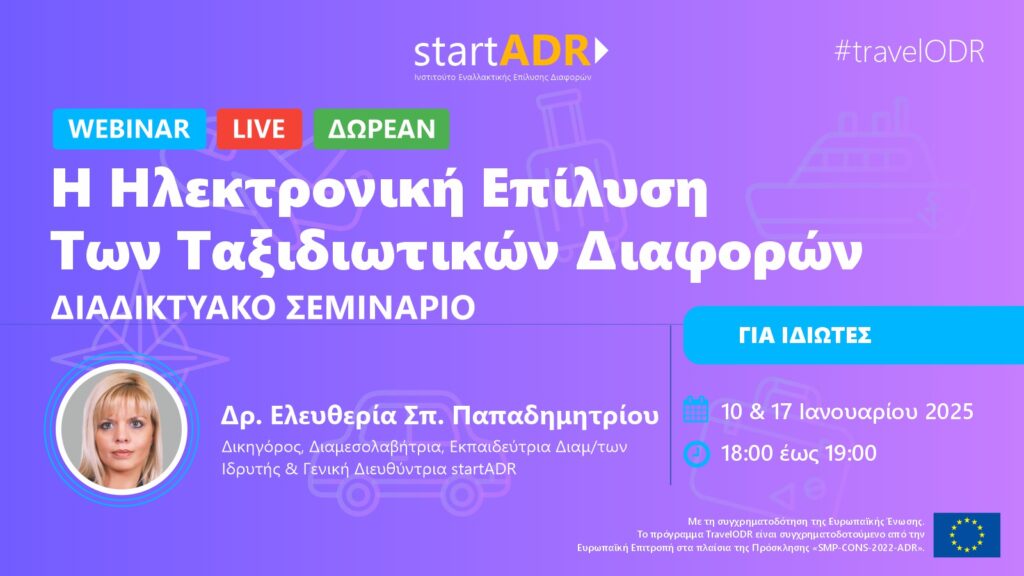

 MediaBranch
MediaBranch